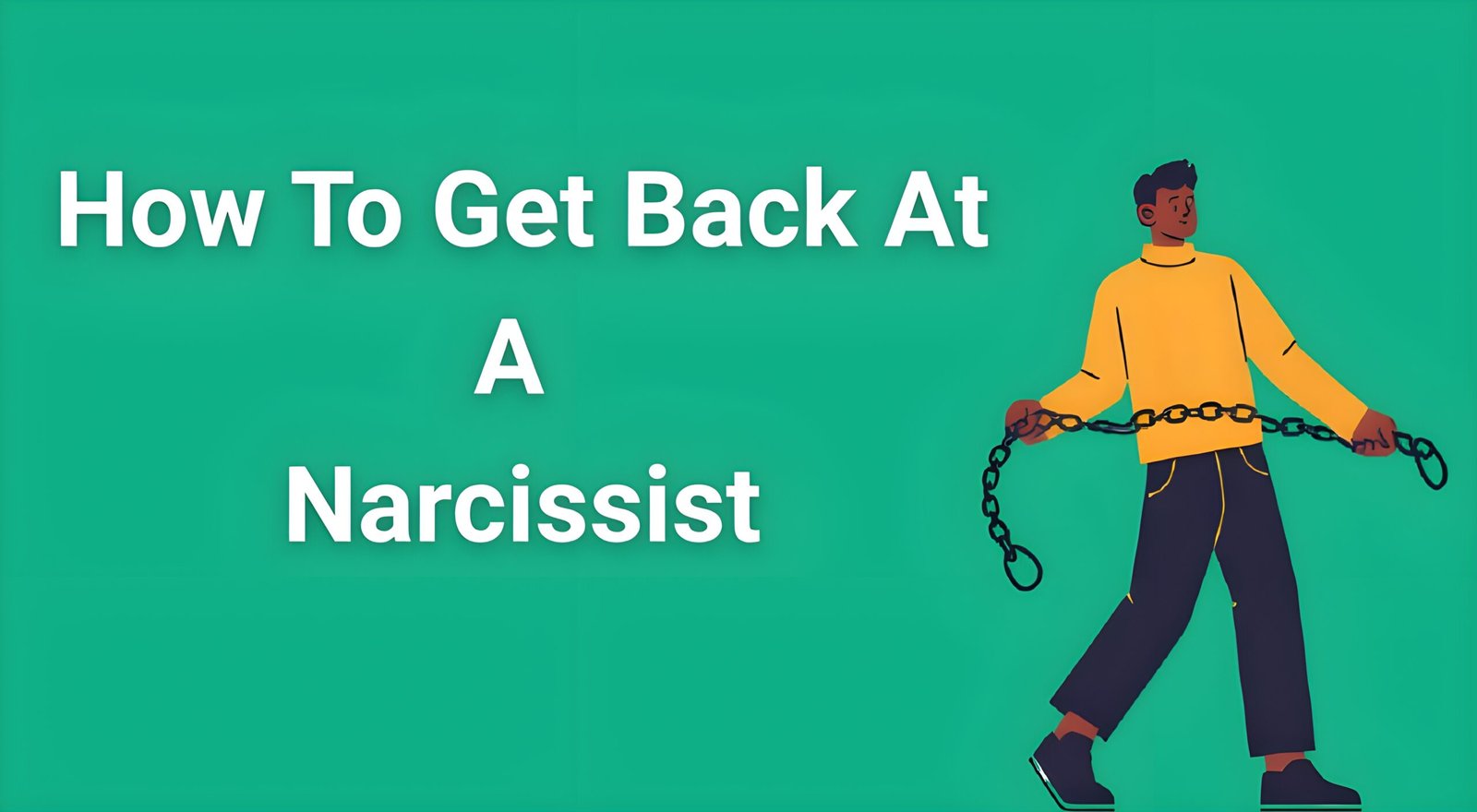If you’re searching for how to get back at a narcissist, you’re not alone. After enduring months or years of manipulation, gaslighting, and emotional warfare, the urge for payback feels overwhelming. You want them to feel the pain they’ve caused you. You want justice. You want them to finally understand what they’ve done.
- Why Traditional Revenge Fails Against Narcissists
- The 7 Psychology-Backed Ways to Get Back at a Narcissist
- Breaking Free from Trauma Bonds
- When You Need Professional Guidance
- The Science Behind Why These Methods Work
- What Real Recovery Looks Like
- Protecting Yourself During This Process
- Moving Forward: Your New Life Begins Now
- Frequently Asked Questions
- Conclusion: Your Journey From Revenge to Freedom
Here’s the thing: traditional revenge not only fails against narcissists—it actually feeds them. But there are seven psychology-backed strategies that will truly devastate a narcissist while protecting your sanity and rebuilding your life.
Why Traditional Revenge Fails Against Narcissists
Before diving into what actually works, let’s understand why your natural revenge instincts won’t work on someone with narcissistic traits.
Narcissists operate from a fundamentally different psychological framework than healthy individuals. They lack empathy, which means they cannot genuinely feel remorse for hurting others. When you try to “get them back” through traditional means—exposing them publicly, fighting fire with fire, or trying to hurt them emotionally—you’re actually giving them exactly what they crave: attention and emotional reaction.
The Narcissistic Supply Trap
Every time you engage in revenge tactics, you’re providing “narcissistic supply”—the attention, drama, and emotional energy they need to survive. Even negative attention validates their importance in your life. This is why they often seem to enjoy conflict and why they can appear completely unbothered by your attempts to hurt them.
More importantly, engaging in traditional revenge keeps you trapped in their toxic cycle. While you’re plotting their downfall, they’re living rent-free in your head, continuing to control your thoughts and emotions even when they’re not physically present.
The 7 Psychology-Backed Ways to Get Back at a Narcissist
1. Master the Art of No Contact (The Ultimate Power Move)
The most devastating thing you can do to a narcissist is to become completely uninterested in them. No contact isn’t just about blocking them—it’s about emotional detachment that cuts off their supply permanently.
Why this works: Narcissists are terrified of being irrelevant. When you stop reacting, stop engaging, and stop caring about what they do, you remove their power over you. This drives them absolutely crazy because they can no longer predict or control your responses.
How to implement:
- Block them on all platforms (social media, phone, email)
- Don’t respond to attempts to hoover you back
- Resist the urge to check their social media
- Remove mutual connections who feed information back and forth
The psychology: Without your attention, narcissists experience what experts call “narcissistic collapse”—a state where their false self can no longer be maintained.
2. Live Your Best Life Visibly
Nothing enrages a narcissist more than seeing their former victim thriving without them. This strategy involves genuinely improving your life and allowing that improvement to be visible to others.
Why this works: Narcissists cannot tolerate seeing you happy and successful because it contradicts their narrative that you needed them. Your happiness is evidence that they weren’t as important as they believed.
How to implement:
- Focus on genuine self-improvement (therapy, new hobbies, career advancement)
- Share your wins on social media (if you haven’t blocked them everywhere)
- Build new, healthy relationships
- Take that trip you always wanted to take
- Pursue goals they said you’d never achieve
The key: This must be authentic. Fake happiness for revenge purposes will backfire and delay your actual healing.
3. Use the Gray Rock Method When Contact Is Unavoidable
Sometimes complete no contact isn’t possible—perhaps you share children, work together, or they’re a family member. In these cases, the gray rock method neutralizes their ability to manipulate you.
Why this works: Narcissists feed on emotional reactions. When you become as interesting as a gray rock, they lose interest and often move on to easier targets.
How to implement:
- Give boring, factual responses only
- Show no emotional reaction to their provocations
- Keep conversations focused on necessary logistics only
- Don’t share personal information or emotions
- Maintain a neutral, disinterested tone
Example response: Instead of “You’re impossible to deal with!” try “I’ll need to pick up the kids at 6 PM on Friday.”
4. Expose Their Patterns (Strategically and Safely)
This isn’t about public revenge or smear campaigns. It’s about strategically sharing information to protect others and yourself, while documenting their behavior.
Why this works: Narcissists rely on their public image and their ability to fool new victims. When their patterns become visible to others, their power diminishes.
How to implement:
- Keep detailed records of their manipulative behavior
- Share your story with trusted friends and family
- Warn new romantic interests (carefully and factually)
- Document everything for legal purposes if necessary
- Support other victims who come forward
Important: Focus on facts, not emotions. Let their behavior speak for itself.
5. Build Unshakeable Boundaries
Strong boundaries are like kryptonite to narcissists. They reveal the narcissist’s manipulative nature while protecting your mental health.
Why this works: Narcissists test boundaries constantly. When you maintain firm boundaries consistently, they lose their ability to push your buttons and control your responses.
How to implement:
- Decide what behavior you will and won’t tolerate
- Communicate boundaries clearly once
- Enforce consequences immediately and consistently
- Don’t negotiate or explain your boundaries repeatedly
- Remove yourself from situations where boundaries are violated
The psychology: Boundaries force narcissists to face the reality that they cannot control everyone around them.
6. Heal and Transform Your Trauma
The ultimate revenge is becoming someone they can never hurt again. When you heal from the trauma they caused, you become immune to their future manipulation attempts.
Why this works: Healed individuals no longer provide the emotional reactions narcissists need. You become a “bad supply” source, making you uninteresting to them.
How to implement:
- Work with a trauma-informed therapist
- Learn about narcissistic abuse patterns and manipulation tactics
- Develop emotional regulation skills
- Practice self-compassion and rebuild self-worth
- Address any underlying trauma that made you vulnerable initially
Understanding the specific patterns in your situation can accelerate this healing process. Many survivors find that getting professional analysis of their particular circumstances helps them see the manipulation clearly and break free faster.
7. Become the Person You Were Before They Damaged You
Narcissists systematically destroy their victims’ sense of self. Reclaiming your authentic identity is both healing and deeply threatening to them.
Why this works: When you remember who you truly are, you become impossible to gaslight or manipulate. Your strong sense of self acts as armor against their tactics.
How to implement:
- Reconnect with interests and hobbies you abandoned
- Rebuild relationships with people you lost during the abuse
- Remember your values and principles
- Practice saying no without guilt
- Trust your intuition and perceptions again
The transformation: This process often reveals that the “revenge” you thought you wanted pales in comparison to the joy of being yourself again.
Breaking Free from Trauma Bonds
One of the biggest obstacles to implementing these strategies is the trauma bond—the addictive psychological attachment that keeps you connected to the narcissist despite the abuse.
If you find yourself unable to maintain no contact, constantly checking their social media, or feeling physically sick when trying to stay away, you’re likely dealing with a trauma bond. This isn’t weakness—it’s a neurological response to intermittent reinforcement that’s actually stronger than cocaine addiction.
Breaking trauma bonds requires specific strategies that address the neurological aspects of the attachment, not just willpower. Understanding how these bonds form and having a systematic approach to breaking them is crucial for your recovery.
When You Need Professional Guidance
Sometimes the manipulation is so subtle and the gaslighting so severe that you need an outside perspective to see the situation clearly. If you’re questioning your own sanity, wondering if you’re overreacting, or feeling completely confused about what’s real, professional analysis of your specific situation can provide the clarity you need.
Many survivors report that having an expert examine their particular circumstances and confirm that what they experienced was indeed abuse provides enormous relief and validates their decision to seek freedom.
The Science Behind Why These Methods Work
These strategies are effective because they target the core psychological needs that drive narcissistic behavior:
Need for Control: By maintaining boundaries and not reacting emotionally, you remove their sense of control over you.
Need for Attention: No contact and gray rock eliminate the attention they crave, forcing them to seek supply elsewhere.
Need for Superiority: Your visible success and happiness challenges their belief that they’re superior and that you need them.
Fear of Abandonment: Ironically, narcissists fear being abandoned despite their treatment of others. Your complete withdrawal triggers this core fear.
Image Management: Exposing their patterns (safely and factually) threatens the false image they work so hard to maintain.
What Real Recovery Looks Like
True recovery from narcissistic abuse isn’t about getting revenge—it’s about reclaiming your life. Here’s what successful survivors report:
- They stop thinking about the narcissist daily
- They trust their own perceptions again
- They feel excited about their future
- They can spot manipulation attempts immediately
- They attract healthier relationships
- They feel genuine compassion for themselves
- They understand that the abuse was never about them
The irony is that when you reach this level of healing, you often realize you no longer want revenge. You want freedom, peace, and joy—and you have all three.
Protecting Yourself During This Process
As you implement these strategies, be prepared for the narcissist to escalate their behavior initially. This is called an “extinction burst”—when someone realizes their manipulation tactics aren’t working anymore, they often try harder before giving up.
Stay safe by:
- Having a support system in place
- Documenting any escalating behavior
- Trusting your instincts about safety
- Having an exit plan if you’re still in physical proximity
- Remember that this escalation is actually proof that your strategies are working
Moving Forward: Your New Life Begins Now
The best revenge against a narcissist isn’t elaborate schemes or public humiliation—it’s living so well that their memory becomes irrelevant to your happiness. It’s becoming so secure in yourself that their manipulation attempts bounce off you like arrows off armor.
Every day you focus on healing instead of revenge is a day you reclaim your power. Every boundary you maintain is a victory. Every moment of joy you experience despite what they did to you is proof of your resilience.
Your life after narcissistic abuse can be better than it ever was before. Not because the abuse was necessary or valuable, but because surviving it revealed strength you didn’t know you had and taught you to value genuine love, respect, and authenticity.
The narcissist will continue their patterns with new victims. But you? You’ll be free, healed, and living the life they tried to convince you that you didn’t deserve.
That’s the ultimate revenge—and it’s also the ultimate victory.
Frequently Asked Questions
Q: How long does it take to see results from these strategies?
A: Most people notice reduced anxiety and clearer thinking within 2-4 weeks of implementing no contact and gray rock techniques. Full healing and transformation can take 6 months to 2 years, depending on the length and severity of the abuse.
Q: What if we have children together and I can’t go no contact?
A: Use the gray rock method during all interactions, communicate only about the children through written formats when possible, and consider parallel parenting instead of co-parenting. Focus on creating a safe, stable environment for your children.
Q: Will the narcissist try to get back at me for using these strategies?
A: They may escalate initially (extinction burst), but narcissists typically move on to easier targets when their manipulation stops working. Document any concerning behavior and prioritize your safety.
Q: How do I know if I’m dealing with a true narcissist or just someone with difficult behavior?
A: The pattern of manipulation, lack of empathy, need for control, and inability to take responsibility for their actions distinguishes narcissistic abuse from normal relationship conflicts. Professional assessment can help clarify your situation.
Q: Is it normal to still love them despite the abuse?
A: Yes, trauma bonds and intermittent reinforcement create powerful attachments that feel like love. These feelings are normal and will fade as you heal and gain distance from the relationship.
Q: What if people don’t believe me about the abuse?
A: Narcissists are often charming publicly, making it hard for others to believe the private abuse. Focus on people who support you and consider that some people may never understand—and that’s okay.
The path to freedom from narcissistic abuse isn’t easy, but every step you take toward healing is a step away from their control. You deserve a life filled with genuine love, respect, and peace. The best revenge is claiming that life for yourself.
Conclusion: Your Journey From Revenge to Freedom
Understanding how to get back at a narcissist fundamentally changes when you realize that traditional revenge keeps you trapped in their web of manipulation. The seven psychology-backed strategies we’ve explored today represent a complete paradigm shift from seeking to hurt them back to reclaiming your own power and peace of mind.
Think of this transformation like learning to play chess instead of checkers. While you were focused on simple back-and-forth moves trying to capture their pieces, they were playing a more complex game designed to keep you engaged indefinitely. The moment you step away from their board entirely and start building your own game, you win by default.
The most profound realization many survivors experience is that the revenge they initially craved becomes irrelevant once they taste genuine freedom. When you’re no longer walking on eggshells, no longer questioning your own reality, and no longer seeking their approval or fearing their disapproval, their opinion of you becomes as meaningless as a stranger’s criticism of your favorite song.
Your healing journey will likely follow a predictable pattern. First comes the recognition that something is deeply wrong in the relationship. Then comes the painful awakening to the extent of the manipulation you’ve endured. This often triggers the intense desire for revenge that brought you to this article. Next comes the gradual understanding that engaging with them on any level only perpetuates your suffering. Finally arrives the liberation that comes from complete emotional detachment and the rebuilding of your authentic self.
Each person’s timeline looks different, but the destination remains the same: a life where the narcissist becomes a chapter in your story rather than the author of your entire book. The strategies outlined here work because they address the root psychological dynamics that keep victims trapped while simultaneously building the inner strength needed to maintain lasting freedom.
Remember that seeking help during this process isn’t a sign of weakness but of wisdom. Whether through therapy, support groups, or specialized guidance that helps you understand your specific situation, having professional support can accelerate your healing and prevent common pitfalls that keep many people stuck in cycles of attempted revenge.
Your future self is waiting on the other side of this transformation. That version of you understands their worth, trusts their instincts, maintains healthy boundaries effortlessly, and attracts genuine love and respect. They look back on this period of your life not with bitterness about what was taken from you, but with pride in what you overcame and gratitude for the strength you discovered within yourself.
The narcissist in your life may never change, may never apologize, and may never even acknowledge the pain they caused. But your freedom doesn’t depend on their transformation. It depends on yours. And that transformation begins the moment you choose healing over revenge, growth over stagnation, and your future over their past.
This is your permission to stop fighting a war you cannot win and start building a life they cannot touch. The best revenge against a narcissist is a life so fulfilling that their memory becomes nothing more than a distant reminder of how far you’ve come.






